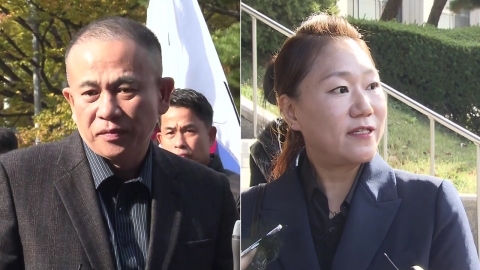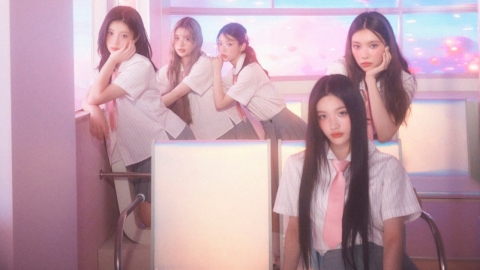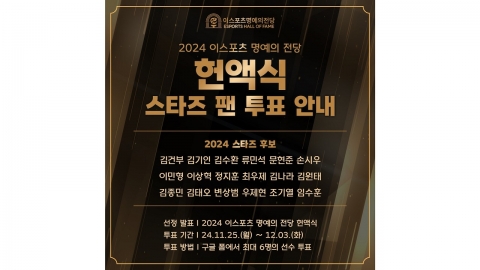■ Telephone connection: Kang Ji-hee, literary critic
* The text below may differ from the actual broadcast content, so please check the broadcast for more accurate information. Please specify [YTN News START] when quoting.
[Anchor]
The first Korean winner of the Nobel Prize in Literature came out.I'm Han Kang, a writer who also won the Booker Prize for "The Vegetarian". Many people couldn't hide their joy at the feat delivered the next day of Hangul Day. It's the biggest slope of Korean literature, and let me point out the meaning of this award. Kang Ji-hee, literary critic, let's call him. The critic is here, right?
[Kang Jihee]
Hello,
[Anchor]
Hello. I would like to congratulate the literary world and Han Kang. It is the first time for a Korean writer to win the Nobel Prize in Literature. What's the meaning of this award?
[Kang Jihee]
It can be said to be a huge slope in Korean literature. Yesterday, I was really overwhelmed to hear the news. Former President Kim Dae Jung has won the Nobel Peace Prize, but this is the first time he has won the Nobel Prize for literature. She is also the first Asian female writer to win the award. As far as I know, it is the 18th Nobel Prize in Literature among female writers. Looking at the nationalities of past winners, France has the largest number of winners, followed by the United States and the United Kingdom, and it can be said that they won awards in Asia, which is rare.
[Anchor]
How was Han Kang's acceptance speech?
[Kang Jihee]
Han Kang's acceptance speech through the phone call is also posted on YouTube. I'm so surprised and honored for a short time. The efforts of Korean writers have inspired him. I hope this will be good news. I didn't expect it at all, I just had dinner and I just answered the phone, and I wanted to celebrate quietly with my son, I left a story like this.
[Anchor]
I'm curious about the background of this award, what did you get a good evaluation?
[Kang Jihee]
Writer Han Kang has continued to embody important historical events. 5. I have dealt with such works as "A Boy Is Coming," which deals with the 18 Gwangju democratization protest, or "I Don't Say Goodbye," which deals with the Jeju 4.3 incident. So, I know that the Swedish Academy also mentioned a lot of important works. I think I appreciated not only these works, but also previously known works of vegetarianism, Greek time, and white aesthetic experiments. So it's not easy to embody a very complete world of work politically and aesthetically. I think that's why he acknowledged the power of embodying violence in the world in his own beautiful poetic sentence.
[Anchor]
I have reviewed the evaluation of the work, and I would like to know more about the novelist Han Kang. What kind of writer are you?
[Kang Jihee]
Mr. Han Kang was born in 1970 in Gwangju. He graduated from the Department of Korean Literature in the Solidarity and made his debut as a poem. Although he is known as a novelist, the poetic sentence itself comes out because he first made his debut as a poet. In 2005, he won the Lee Sang Literary Award, which is a short Mongo mark, and a vegetarian trilogy that you know a lot won the Lee Sang Literary Award at the time, and in fact, he has already established himself as a representative writer in Korea. And in 2016, a vegetarian won the Booker Prize in Foreign Literature, showing his presence on the international stage. After that, the works such as "The Boy Comes" and "Never Say Goodbye" were introduced to foreign countries steadily, and last year, they won the French Medici Foreign Literature Award for "Never Say Goodbye," which made them more known. When I heard the acceptance speech for the Nobel Prize in Literature earlier, he asked me that I think Stryd is an inspirational writer because he is a famous children's literature writer. But Han Kang replied that I liked it very much. After receiving the Man Booker Award, a long article in the newspaper in 2017 showed why he dealt with the Gwangju Democratic Uprising.
[Anchor]
Each of Han Kang's works is very good, and I think there will be many people who are interested in it through this opportunity. Since there are so many works, there are probably a lot of people who don't know what to read first. Is there a work that the artist recommended?
[Kang Jihee]
In the writer's interview, all writers have no choice but to like their most recent work. I also said that I hope it can be a start when all the readers first start reading my work after not saying goodbye in 2021. And you recommended a work called White as a very personal work. You can think of this work as a work that is on the boundary between essays and novels. And I understand that you also mentioned vegetarians.
[Anchor]
Do you have any books you want to recommend personally?
[Kang Jihee]
There's a piece that I personally like like like Hidden Track. That's because my favorite work is Greek time. There is a work that can be called the artist's unique aesthetics, and what makes the body rise again from a clean world, sadness, while continuing to ask the meaning of humans about power. And I would like to recommend this work because it tells these stories about what makes you feel like a place to live and what you think the meaning of love is, and it seems to be the brightest work among the many works that make up the Han River.
[Anchor]
Also, my father is known as Han Seung-won, a novelist. I know that. It also gave birth to a true record of both the father and the daughter winning the Ideal Literature Award at the same time. I'm sure your father was influenced by the life and work of Han Kang, right?
[Kang Jihee]
That's right. My father's novelist Han Seung-won is well known as Agase Barase. It was also made into a film by director Lim Kwon-taek in 1989. And Han Seung-won's autobiography came out in 2021, and Han Kang wrote a recommendation at that time. In fact, I say this by saying that my father has always put literature in front of his life, and he didn't want to live like that, but it was a recommendation that revealed deep respect for his father. There was a moment of gentle understanding, albeit belatedly, of how I came to understand my father and that he was living his entire life with writing as a religion.
[Anchor]
Writer Han Kang's award was evaluated as an honor in 107 years since the introduction of modern Korean novels. It's truly a slope of Korean literature. It's so popular that it's paralyzed by the homepage of a large bookstore. Will this award give a great boost to young writers as well as to our literary world?
[Kang Jihee]
It was also fun news for many Koreans. It was exciting news. I think it is also a great encouragement for writers. I think there have been various situations in which Korean literature has no choice but to think about it as a periphery of world literature. Now, there are many evaluations that it has become the center of world literature, and I think it will be an opportunity for Korean literature to be translated more actively in the future.
[Anchor]
Poet Ko Eun and novelist Hwang Seok-yeol were previously nominated for the Nobel Prize in Literature, but unfortunately, the award failed. Although our literature is outstanding, there were also evaluations that there were various difficulties in expressing the intended meaning in the process of translating our language. Is it okay to say that we have overcome that difficulty now?
[Kang Jihee]
As you said, translation was a really important issue when crossing the threshold abroad. So I think this award is also a great achievement of the Korea Literature Translation Institute. I know that the translation institute has supported a lot so far, and there have been more excellent translators specializing in Korean literature, so more people are working as translators than just Korean literature researchers. And one of the important translators that led to that is a translator named Deborah Smith, which many of you may know. It's also the main player who translated vegetarians and won the Man Booker Prize. I think there will be more translators like this in the future.
[Anchor]
As for our literature, there are people who know the excellence of Korean literature themselves, and there are some who joke that the Nobel Prize in Literature is not too late, but foreign media are also praising it. In the future, there will be more opportunities for Korea's outstanding writers to show their presence on the world stage.
[Kang Jihee]
I think the influence of Korean culture will expand. Since a few years ago, K culture has already been recognized by Korean idols and movie parasites around the world. In fact, it is unconventional to explore the level and sensitivity of Korean literature through overseas recognition.Ma, so I'm very happy to spread the possibilities of Korean literature like this. I think the expression that the Nobel Prize in Literature is rather late comes from this sense.
[Anchor]
I think it's the starting point from now on where the influence of Korean literature can be shaken. Then, what do you see as your future task to promote the excellence of Korean literature?
[Kang Jihee]
In fact, many writers in Korean literature are already doing really well. I think there are so many great works. Rather, I think there are writers who can be rediscovered in the overseas cultural world because they are not translated. So, since the mid-2010s, there have been many changes in the Korean literary genre, and young writers and genre writers are very active, so I hope that many writers who have not received attention will be selected and introduced.
[Anchor]
I see. Congratulations once again on author Han Kang's Nobel Prize in Literature, and I hope our literature will spread to the world. We talked about Zig with literary critic Kang Ji-hee. Thank you for talking today.
※ 'Your report becomes news'
[Kakao Talk] YTN Search and Add Channel
[Phone] 02-398-8585
[Mail] social@ytn. co. kr
[Copyright holder (c) YTN Unauthorized reproduction, redistribution and use of AI data prohibited]
Culture
More- Psy's Hannam-dong villa was released after seizure... "I didn't know about illegal expansion."
- "Re-discussing your attendance at the Blue Dragon Film Awards"...Out-of-wedlock controversy 'one-wave'
- BTS agency Big Hit Music Appoints New CEO Shin Sun-jung
- Psy's Hannam-dong villa was released after seizure... "I didn't know about illegal expansion."






![[Yetterview] Dixon's youth who overcomes wandering for 2 years and 9 months and runs again.](https://image.ytn.co.kr/general/jpg/2024/1126/202411261616521790_h.jpg)

